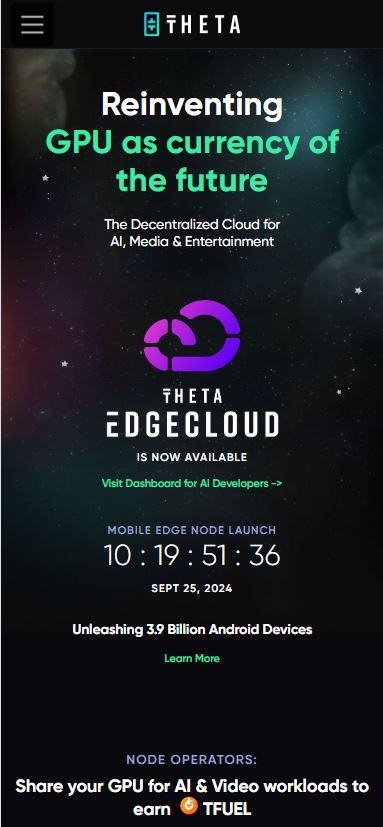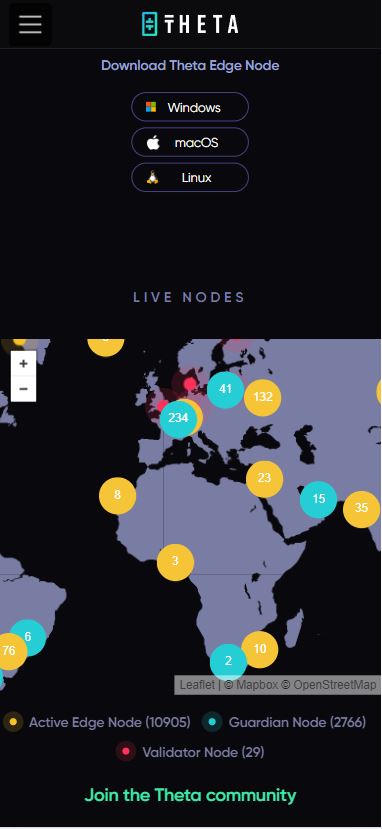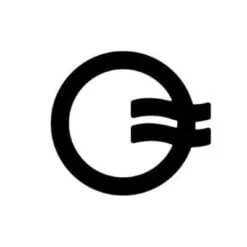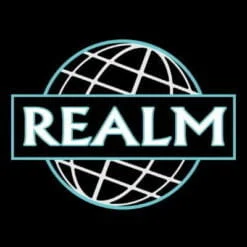About Theta Network (THETA)
What is Theta Network (THETA)?
Theta Network (THETA) is a decentralized, blockchain-based platform designed to improve video streaming by addressing challenges such as centralization, high infrastructure costs, and poor video quality. Launched in March 2019, Theta Network allows users to share bandwidth and computing resources on a peer-to-peer (P2P) basis to enhance the delivery and streaming of video content. It operates with its native cryptocurrency, THETA, which plays a key role in governance and incentivization within the network.
How Does Theta Network (THETA) Work?
Theta Network works by creating a decentralized video streaming ecosystem where various participants (content creators, viewers, advertisers, and network nodes) share resources. The core features of the network include:
- Peer-to-Peer Content Delivery: The network allows users to share their unused bandwidth and computing resources to cache and deliver video content more efficiently, reducing the need for costly centralized infrastructure.
- Caching Nodes & Ingest Nodes: Caching nodes store and distribute content (video streams), improving the quality and delivery speed of video content. Ingest nodes assist caching nodes by providing content and stream resolution.
- Compensation via THETA Tokens: Users are rewarded in THETA tokens for their contributions, such as sharing bandwidth or streaming content. Content creators receive better compensation than traditional streaming platforms, which often take a large share of advertising and subscription revenues.
- Decentralized Streaming with EdgeCast: EdgeCast is a decentralized application (dApp) on the Theta Network that allows video content to be streamed efficiently by leveraging a P2P network.
Potential Use Cases for Theta Network (THETA)
- Decentralized Video Streaming: By reducing the reliance on centralized infrastructure, Theta Network offers a more cost-effective, efficient, and user-friendly video streaming experience. Users get rewarded for sharing bandwidth and content resources, while content creators benefit from higher compensation and more control over their content.
- Esports, Music, and Entertainment: Theta’s decentralized platform is ideal for streaming esports events, music performances, TV shows, movies, and more. Theta can be used by content creators in these sectors to improve user engagement while reducing distribution costs.
- Blockchain-Based Edge Computing: Theta’s ecosystem enables the growth of decentralized applications (dApps) and edge computing services. The network’s design allows developers to create decentralized video streaming services and applications that scale efficiently without central servers.
- Advertising & Monetization: Advertisers can engage with users through Theta’s decentralized platform, allowing for more direct and transparent ad spend while giving content creators and viewers a larger share of the profits.
- Web3 & NFT Integration: Theta Network can support Web3 applications, allowing for the integration of NFTs and other blockchain-based assets into video content, creating new forms of monetization and engagement in the video and gaming industries.
- Data Storage and Delivery: Beyond video, Theta’s decentralized system can be used for other types of data storage and delivery, especially for large-scale data like blockchain archives, file storage, and backup solutions.
History of Theta Network (THETA)
Theta Network was co-founded by Mitch Liu and Jieyi Long in 2018. Both founders have extensive experience in the gaming, video, and blockchain industries:
- Mitch Liu has worked in the mobile social gaming industry and co-founded Tapjoy (a video advertising firm) and Gameview Studios. He also co-founded THETA.tv, the live-streaming platform that became the first decentralized application (dApp) built on Theta’s protocol.
- Jieyi Long, Theta’s CTO, has a background in design automation, virtual reality, and large-scale distributed systems. He is a noted researcher with multiple academic papers and patents in video streaming, blockchain, and VR.
Theta Network launched its mainnet in 2019, moving from an ERC-20 token on Ethereum to its native THETA token on the Theta blockchain. Since then, Theta has expanded its ecosystem, forming partnerships with major companies in the video and entertainment sectors, including Samsung, Google Cloud, Sony, and others.
Theta Network’s Ecosystem
Theta’s ecosystem comprises several components:
- THETA Token: The governance and staking token that is used to participate in network validation, protocol upgrades, and other decentralized decisions.
- TFUEL (Theta Fuel): A utility token used for transaction fees and operational costs, including paying for content delivery and video streaming. TFUEL tokens are earned by users who share resources like bandwidth and storage.
- Theta.tv: A live-streaming platform built on the Theta blockchain, designed to offer decentralized video streaming and incentivize users to share their bandwidth and computing power.
- Validators & Delegates: Theta Network uses a Proof-of-Stake (PoS) consensus mechanism, where validators and delegates help secure the network, with rewards distributed in THETA tokens.





















Eyad –
good